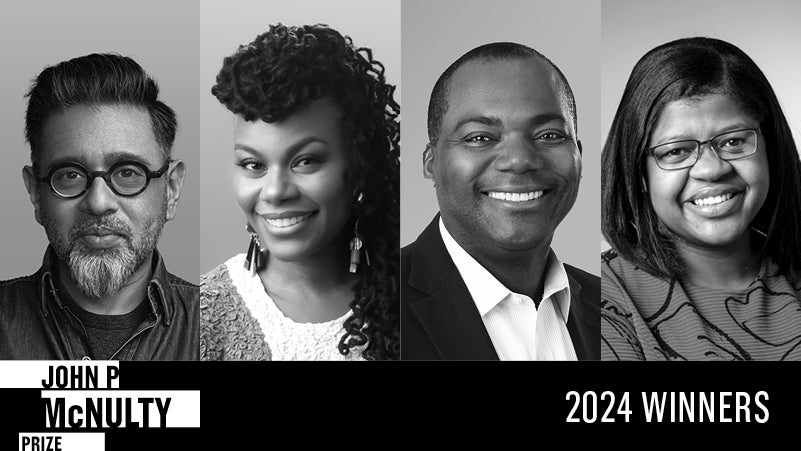The Aspen Institute proudly champions the significance of open dialogue as a catalyst for positive change and means of fostering empathy, bridging divides, and driving innovation. Aspen Ignites: Conversations to Build a Better World is an original series that brings together thoughtful people with diverse backgrounds and points of view. In the inaugural episode, Mary Louise Kelly, author and host of NPR’s All Things Considered, joined Aspen Institute President and CEO Dan Porterfield to talk about the power of dialogue to make participants open to new points of view and insights and precipitate change. Here are some key takeaways from their conversation.
Dialogue is an end goal at the Institute
In most settings, dialogue is a means to an end. But at the Institute, dialogue is part of the end goal. “Dialogue can actually be thought of as a form of action,” Porterfield said. “Bringing people together to share their ideas and to learn and grow together has a transformational effect.” This effect can lead people to make connections or commitments in unexpected ways.
“The fundamental idea is that we exist in reciprocal relationships with one other,” Porterfield said. “So, how can we enhance those relationships by engaging?”
Dialogue can actually be thought of as a form of action. Bringing people together to share their ideas and to learn and grow together has a transformational effect.
Sharing contradictory ideas is necessary
Porterfield spoke of how he strives to create spaces that encourage the expression of contradictory views.As an example, he described how the Aspen Institute recently hosted an off-the-record dialogue on gun violence. In that setting, experts with a broad range of perspectives could “let down their guard and really talk to each other.”
Similarly, at the events the Institute hosts, “we work to construct panels that allow multiple points of view to be aired” about charged topics.
Diverse perspectives make for richer dialogue
Encouraging the exchange of contradictory ideas requires inviting a wide range of perspectives to the table.
“If critical perspectives are kept from the table, then it actually isn’t a genuine dialogue,” Porterfield said.
Mary Louise Kelly explained how this principal guides the way she chooses interview subjects for All Things Considered: “In our newsroom, there is a concerted effort to be drawing on voices that you have not heard before.”
She also shared that listeners are much more willing to hear differing perspectives if they know that all voices are respected. “If I say in the intro, ‘This is one of many voices. We’re talking to people all over the spectrum’ … people are much more inclined to listen with an open mind.”
If critical perspectives are kept from the table, then it actually isn’t a genuine dialogue.
Exploring personal values is important for dialogue
Dialogue also can happen internally, with oneself. This is the model of the Institute’s leadership development programs, fellowships that offer an opportunity to pause, reflect, and refine one’s values.
“We use a model of text-based dialogue,” he said, in which people “read a text, talk to each other about what that text means, and then reflect on what that conversation and the text mean to [them].”
The purpose of this “is for people to go deeper into their own personal values in a context of sharing those ideas with others.” By exploring existing concepts both alone and with others, people can develop a richer understanding of it.
The purpose of the work is for people to go deeper into their own personal values in a context of sharing those ideas with others.
Learn more about the Institute’s Aspen Global Leadership Network of fellows.
The right space can facilitate a more open dialogue
In reflection of the Aspen Institute’s peaceful Colorado campus, Porterfield explained how its founders chose the location because, “The idea was that by bringing people together in a place where they could align their mind, their body … and maybe their sense of citizenship, that all of those things could come together and provide an openness that would then allow for new ideas and new thoughts.”
The idea of creating a sense of awe can open the mind to insights that everyday life makes elusive, he continued, “That’s something we’re trying to achieve here in Aspen, but actually anywhere where the Aspen Institute is putting on a program … How can we create the environment that opens people up to each other and ultimately to themselves?”
Watch the full conversation below.

